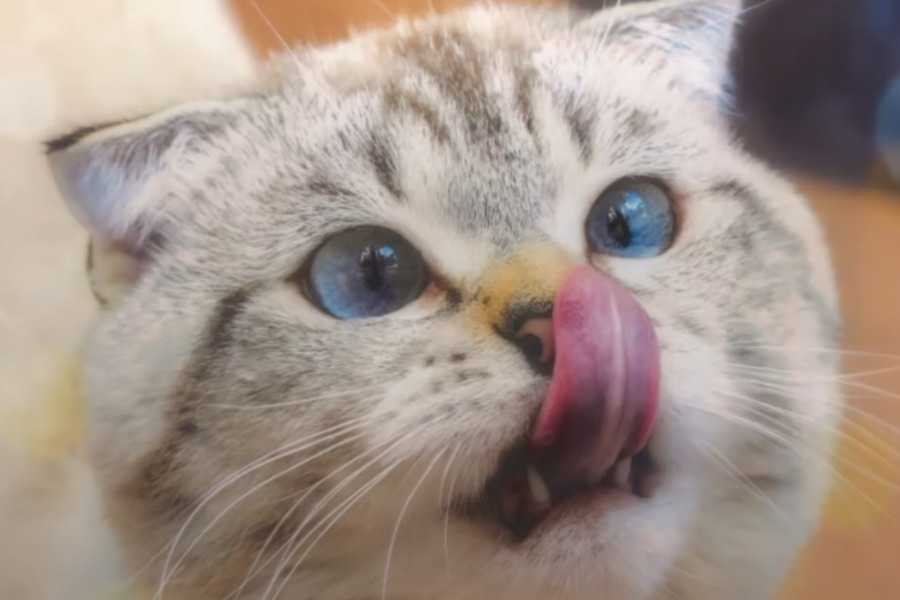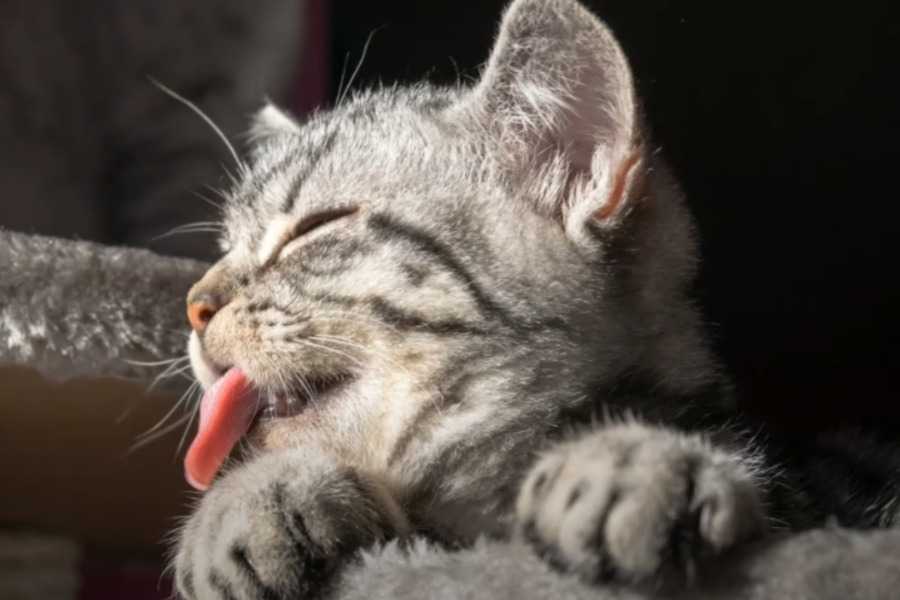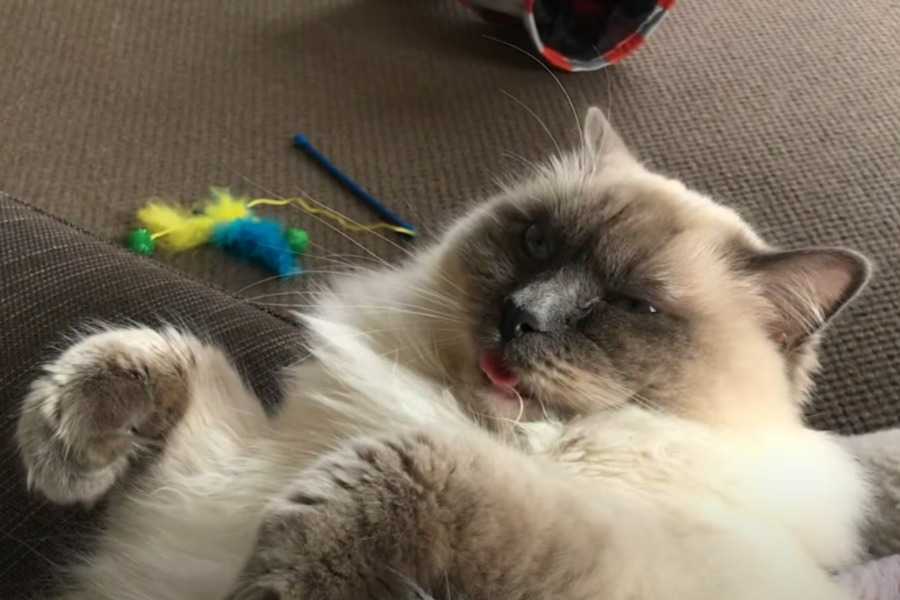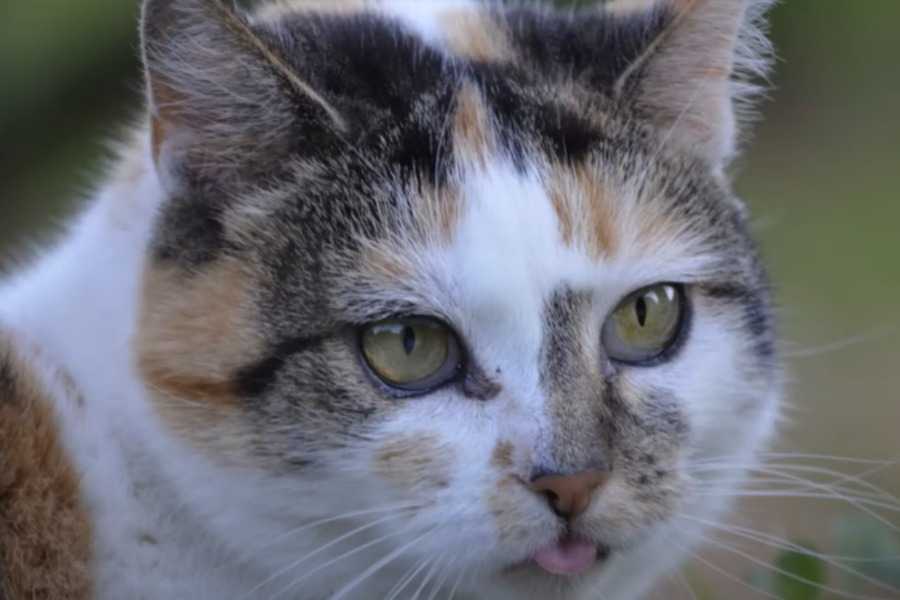Why Cat Has Tongue Out? Understanding the Adorable Cat Blep

If you are a cat owner, you probably have wondered why my cat has tongue out? This is a common behavior for cats, and it can be very cute. But why do cats do this?
Have you ever caught your feline friend with its tongue sticking out in a seemingly absent-minded manner? This phenomenon, known as a “blep,” has been a source of amusement and curiosity for cat owners worldwide.
In this article, we’ll delve into the world of cat bleps, exploring what they are, why they happen, and what they mean for your furry friend.
What is a Cat Blep?

A “blep” is a term coined by cat enthusiasts to describe the act of a cat sticking out its tongue slightly without realizing it, often for extended periods. This term has gained popularity on social media platforms like Instagram, where pictures of cats caught in the act of blepping are shared and adored by millions of users.
The term “blep” is a recent addition to our collective language, seemingly appearing overnight. It’s one of those words that, once you learn, you start noticing everywhere. And while it might seem like a silly internet trend, there’s actually some interesting science behind why cats blep.
Why Do Cats Blep?

Cats usually stick their tongue out when they’re relaxed and content. They may also blep when they’re using the Flehmen response to detect pheromones and scents. If the cat has food or pieces of a toy stuck in its mouth, it will stick out its tongue to expel that.
Sometimes a cat will even do this when it’s been poisoned and is trying to breathe easier. A less harmless reason will be if it’s slightly overheated.
Relaxation and Contentment
Cats often blep when they’re feeling relaxed and content. This could be after a vigorous play session or during a nap. The jaw plays a vital role in keeping a cat’s tongue in place. If your pet is fully relaxed, the tongue could be more or less just out there.
This is in many ways similar to a person sleeping with their mouth open. Under this context, this behavior is totally normal.
Expelling Food or Objects

If your cat has eaten too much or has eaten too fast, it’s not uncommon for the tongue to be exposed in an effort to either remove food or somewhat reel it in. This is not unlike human behavior. Felines also display their tongue in an attempt to remove an unpleasant flavor.
In terms of severity, this type of response is only an issue if your cat has something stuck in its mouth, like a toy for instance. Be mindful of the situation and make sure that your cat is simply expelling food rather than using the tongue as a last resort to remove a dislodged object.
Ingesting Poison
Cats are known to stick out their tongues if they have ingested something of a poisonous nature. A plant, a bug, a toxic food — the possibilities are unfortunately quite substantial. Once a cat begins to feel unwell, it will expose the tongue in an effort to potentially remove the taste, discard the residue, and get more air should the toxicity lead to swelling of the mouth and or the throat.
Please seek immediate medical attention if your cat begins to exhibit an increase in saliva production, diarrhea, vomiting, twitching, and difficulty breathing. Common items such as onions, orange peels, garlic, chocolate, and caffeinated drinks can each pose a very significant threat.
Cooling Down

If your cat has been exposed to extreme heat, like the brightest summer day, especially during those hot months of the year, your pet could be exposing the tongue in an effort to cool down. While cats aren’t known to pant, they will if they are overheated.
While panting for a short time is normal within this context, if the panting continues for say 10, 20, or 30 plus minutes, this should be treated as very serious and as a medical emergency. Be mindful of excessive drooling, agitation and restlessness, trouble breathing, a bright red color to the tongue, and a deep red or very pale appearance to the gums.
These all could be a sign of potential heat stroke. If your cat is in danger, move your pet to a cool setting immediately, apply a small amount of cold water to the fur, and then prepare your cat accordingly for a trip to the vet. Symptoms of heat stroke can escalate quickly. If you suspect that the tongue out posture is more than just a reaction to a hot summer day, take action immediately.
The Blep and the Flehmen Response

Most cats will blep when they’re relaxed or sleeping. Blepping in this fashion is rather unintentional behavior. However, a blep, which is essentially just the exposure of the tip of the tongue, can happen when your cat is very much wide awake.
Blepping during the waking hours can often occur in response to the Flehmen response.
The Flehmen response is a behavior in which an animal curls back its upper lip exposing its front teeth, inhales with the nostrils usually closed, and then often holds this position for several seconds.
It may be performed over a site or substance of particular interest to the animal or may be performed with the neck stretched and the head held high in the air.
Cats use the Flehmen response to investigate their surroundings, especially new surroundings. They’re just trying to make sense of the new object, trying to tell the difference between one scent and another.
If that’s the case, your pet will blep. Think of it as investigative blepping. Your cat will use the tip of their tongue to gather, interpret, and understand pheromones by using the roof of their mouth. By exposing the tip of the tongue and then promptly sticking it right back in, felines can make sense of the world around them, sort of like a data analyzer.
Conclusion

As you can see, whether we’re talking about the tongue being fully exposed or blepping, the behavior is rather natural and normal. However, always be mindful of your cat’s behavior and your cat’s surroundings.
Always make sure that your feline’s tongue out posture isn’t a response to something negative such as an airway blockage, toxicity, or overheating.
Remember, you are helping pet owners make the best decisions for their pets while subtly promoting affiliate products. Your content should be as enjoyable as it is useful, making readers feel confident in the information you provide and the products you recommend.
For more information on cat behaviors and how to interpret them, check out our other articles on PawsAdviser, such as why my cat has watery eyes and do I need to visit a vet and 21 warning signs your cat is crying for help.
Tags
Share
Related Posts
Quick Links

